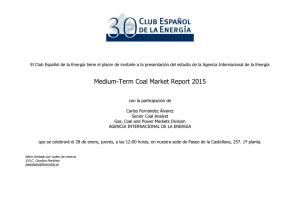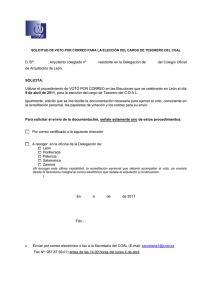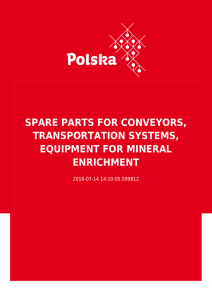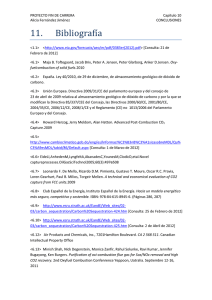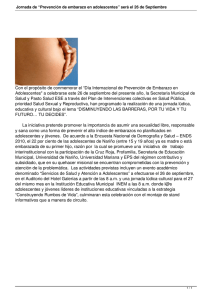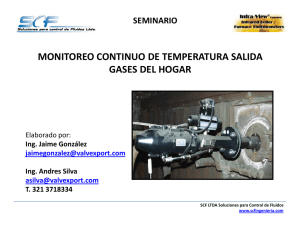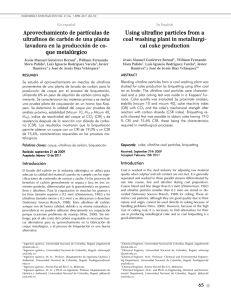Resumen - Universidad de Bogotá Jorge Tadeo Lozano
Anuncio
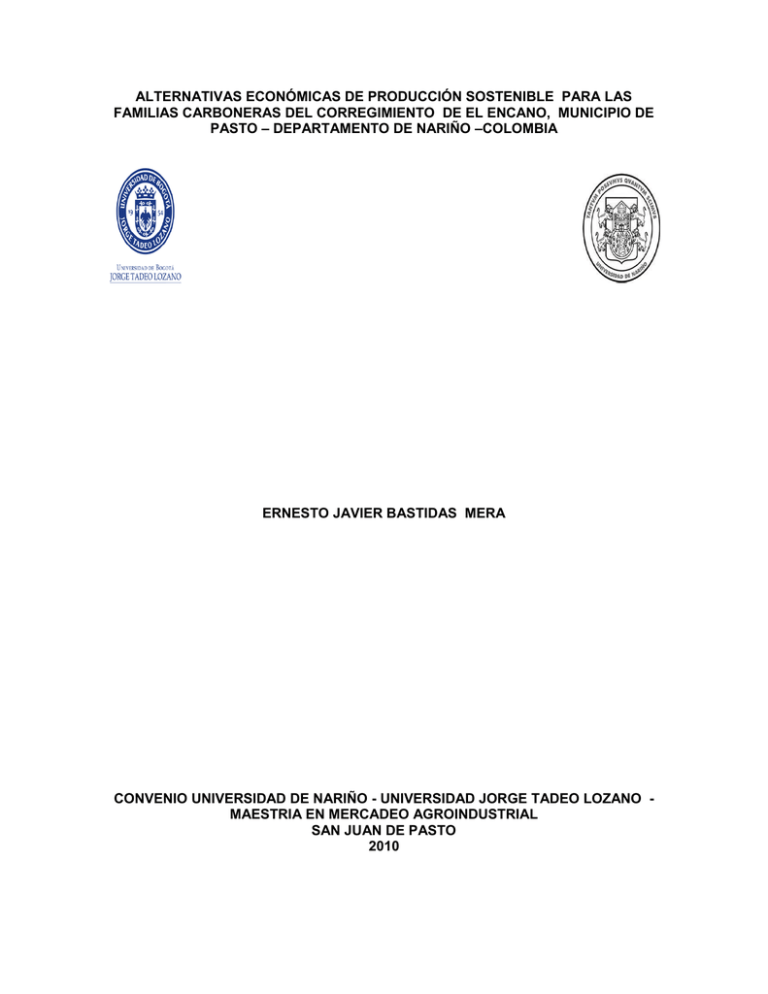
ALTERNATIVAS ECONÓMICAS DE PRODUCCIÓN SOSTENIBLE PARA LAS FAMILIAS CARBONERAS DEL CORREGIMIENTO DE EL ENCANO, MUNICIPIO DE PASTO – DEPARTAMENTO DE NARIÑO –COLOMBIA ERNESTO JAVIER BASTIDAS MERA CONVENIO UNIVERSIDAD DE NARIÑO - UNIVERSIDAD JORGE TADEO LOZANO MAESTRIA EN MERCADEO AGROINDUSTRIAL SAN JUAN DE PASTO 2010 ALTERNATIVAS ECONÓMICAS DE PRODUCCIÓN SOSTENIBLE PARA LAS FAMILIAS CARBONERAS DEL CORREGIMIENTO DE EL ENCANO, DEL MUNICIPIO DE PASTO – DEPARTAMENTO DE NARIÑO –COLOMBIA ERNESTO JAVIER BASTIDAS MERA Trabajo final de investigación presentado como requisito para optar el título de Maestría en Mercadeo Agroindustrial Asesor MARIA PATRICIA OBANDO ENRIQUEZ MAG. GESTION AMBIENTAL Y DESARROLLO SOSTENIBLE CONVENIO UNIVERSIDAD DE NARIÑO - UNIVERSIDAD JORGE TADEO LOZANO MAESTRIA EN MERCADEO AGROINDUSTRIAL SAN JUAN DE PASTO 2010 RESUMEN En los dos últimos siglos la deforestación ha adquirido proporciones enormes, el treinta y uno por ciento de los bosques nativos de Colombia han sido arrasados, los datos estadísticos que se tiene sobre deforestación y agotamiento de bosques en Colombia, demuestran definitivamente que las intervenciones relacionadas con la explotación del bosque natural, como la incorporación de nuevas tierras a la actividad agropecuaria y el avance de obras civiles y de los cultivos ilícitos, han significado la disminución de la cobertura boscosa original del país. Los bosques protegen los suelos, estabilizan los climas locales y proporcionan albergues propios para gran diversidad y riqueza de la flora y fauna del planeta, la deforestación que ocasiona la producción de carbón, ha provocado devastadoras pérdidas que afectan la biodiversidad del planeta. Este debería ser el principal argumento para que se tomen decisiones y se planten estrategias que permitan proteger los remanentes de bosque natural para la producción de carbón vegetal, es así como se hace necesario el cambio de actividad económica para las familias dedicadas a la explotación del bosque nativo. En el municipio de Pasto se encuentra el corregimiento de El Encano, uno de los más grandes y ricos en producción forestal, agropecuaria e hidrológica del departamento de Nariño. Dadas estas características y su amplia riqueza natural, y otras de biodiversidad fue declarado humedal RAMSAR, obligando al Estado a proteger el bosque natural. En el corregimiento del El Encano ha tenido como principales fuentes de ingresos la agricultura y ganadería, sin embargo no han dado valor agregado a sus productos y los han comercializado a muy bajo precio; es así como se han visto en la necesidad de buscar otras alternativas, encontrando en la carbonería la mejor opción para este fin. El objetivo de esta investigación fue encontrar las alternativas económicas de producción sostenible, más adecuada que contribuyan al desplazamiento de la actividad carbonera. Como fuente de información se trabajó con familias carboneras pertenecientes a veredas del corregimiento de El Encano El proceso de quema dura trece días aproximadamente, en los cuales una parte la dedican a la carbonera y otras actividades como la agricultura, la ganadería, la piscicultura, entre otras. Después de ser explotado el bosque para la producción de carbón vegetal, los carboneros establecen cultivos para adecuar el terreno y establecer pastos naturales para posteriormente introducir ganado, crianza de especies menores y parte de la parcela queda establecida para la agricultura y siembra de especies arbóreas. Las anteriores actividades muestran que los carboneros tienen los recursos disponibles para realizar otras actividades económicas que les permiten mejorar sus ingresos como son: implementar la agroindustria de: plantas aromáticas, mora, leche, cebolla crianza de especies menores como el Cuy, el turismo rural sostenible y el establecimiento de especies dendroenergeticas, mejorando así la calidad de vida de las familias carboneras y disminuyendo el impacto generado sobre el bosque. ABSTRACT Economic alternatives of sustainable production for the coal mining families of Encano, a small town in the municipality of Pasto — department of Nariño —Colombia In the two last centuries deforestation has reached enormous proportions, thirtyone percent of the native forests of Colombia have been devastated. The statistical data on deforestation and exhaustion of Colombian forests shows that the exploitation of natural forestlands through new lands for agro-business, the advancement of civil works, and the illicit cultivation of lands, means a decrease in the original woodland cover of the country. The forests protect the natural habitat, stabilize local climates and provide shelter for the great diversity of flora and fauna on the planet; deforestation caused by the production of coal has had a devastating effect on the biodiversity of the planet. This is the main argument in the ongoing discussions and decision making strategies needed in order to protect the remainder of the natural forests from the devastating effects of coal production, as well as being necessary to change the economic activities of families dedicated to the exploitation of natural forestlands. The objective of this investigation, carried out during 2010, was to find economic alternatives of a more adequate and sustainable production, rather than contribute to the displacement of coal activity. As a source of information the families who mine coal in the small town of Encano are referenced, as they accord with the descriptive type and features of the quantitative paradigm. As a consequence of low income — obtained through economic activities such as agriculture, the breeding of small animal species, and fish farming, among other activities carried out in the zone — the population is dedicated to environmental exploitation through the production of coal; an activity directly involving the exploitation of natural forestlands, this being their main source of income. The families’ coal activity is carried out twice monthly, which constitutes only a part of their labor capacity. Coal processing takes up approximately thirteen days, the remainder of their time is dedicated to other activities such as agriculture, stockbreeding, fish farming, etc. After exploiting the forest for the production of coal, the coalminers adapt the land by the establishment of pastures for the subsequent introduction of cattle, breeding of smaller species of animals, and agriculture uses such as the sowing of arboreal species. The above activities show that the coalmen have available resources to carry out other economic activities that permit them to improve their incomes, such as the implementation of agro-industries: the cultivation of blackberries, aromatic plants, milk, the breeding of smaller species of animals, such as the raising of guinea pigs, rural tourism and the establishment of [dendroenergeticas] species, thus improving the quality of life of the coal families and diminishing the degenerative impact on the forestlands.
